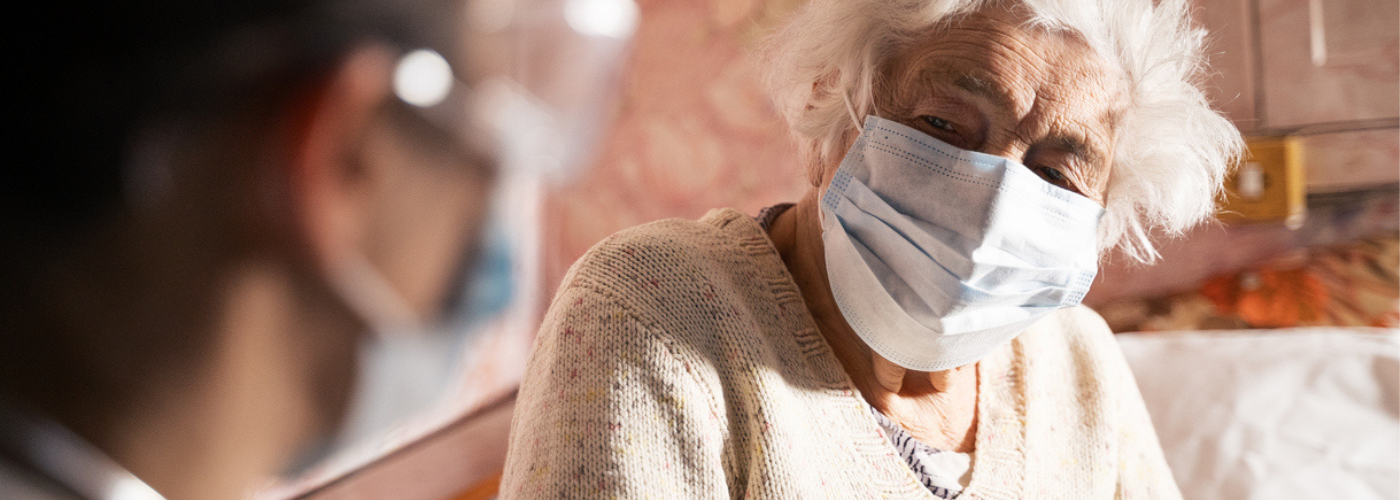Influenza Information for LTCHs
Universal Influenza Immunization Program
Ontario’s Universal Influenza Immunization Program (UIIP) provides publicly funded influenza vaccine for individuals aged 6 months or older who live, work or attend school in Ontario.
Why get the flu shot?
Anyone can get sick from influenza (flu) and when people, especially the elderly, get sick with influenza it can be very serious. Influenza can be so serious, that it can lead to hospitalization and sometimes even death. Every flu season is different, and influenza infection can affect people differently. The best way to protect yourself and your residents from influenza is to get the annual influenza vaccine (flu shot). The more people that get vaccinated against the flu, the less risk of the infection spreading through LTCHs and the community. Get more influenza information from the Ministry of Health and Long-Term Care.
Vaccine effectiveness in the elderly
The flu vaccine is less effective in people that are 65 years and older because they tend to have weaker immune systems compared to younger, healthier people. This can cause a lower protective immune response after receiving the flu vaccine. Despite the fact that flu vaccines can work less well in people who are 65 and older, there is still some protection which is better than no protection. Learn more about vaccine effectiveness and flu facts from Public Health Ontario.
Refer to the Influenza Information for Health Care Providers webpage for additional guidance and resources from the Ministry of Health.
What is an influenza outbreak?
A confirmed Influenza outbreak can be defined as 2 or more cases of nosocomial (hospital / institutional acquired) influenza within 48 hours in a specific area with at least one lab confirmed case.
What to do if you suspect an outbreak
Step 1: Report to Public Health and collect swabs
Report the suspected outbreak to Southwestern Public Health (SWPH) and collect nasopharyngeal swabs, as per SWPH recommendations using the following test requisition forms:
Laboratory Testing
During the flu season, the lab conducts tests that will look for flu. The first test is a direct (or rapid) test that is only completed for outbreaks. This test is completed and reported to Public Health within one day after receiving a sample. This test is critical during outbreaks because initiation of antiviral treatment / prophylaxis needs to start as soon as possible in the event the test is positive for flu.
The second test is a multiplex respiratory viral PCR (MRVP) test. This test can take up to 3 days to complete and report to Public Health. The MRVP test is much more accurate and specific compared to the direct test.
For more information on influenza laboratory testing, visit Public Health Ontario.
Step 2: Treat and Prophylax
Antiviral medication is used to manage institutional outbreaks related to Influenza A and/or B. Antiviral drugs are used for both prevention (prophylaxis) and early treatment of influenza infection. The use of antiviral medication and outbreak control measures can quickly bring an influenza outbreak under control.
Find more information and guidance for controlling respiratory infection outbreaks in LTCHs.
Treatment and Prophylaxis Algorithms
Antiviral Treatment Effectiveness
Antiviral treatment should be started within 48 hours of symptom onset for maximum effectiveness. Treatment effectiveness decreases when used after 48 hours of symptom onset.
Early antiviral treatment (treatment given within 48 hours) has been shown to:
- Decrease the duration of symptoms;
- Decrease complications associated with influenza infection; and
- Decrease the risk of death in patients with influenza.
Antiviral Prophylaxis Effectiveness
Antiviral prophylaxis has been shown to be approximately 70% to 90% effective in preventing influenza. Antiviral prophylaxis should not be used to replace the seasonal flu vaccine because it can promote resistance to antiviral medications, or reduce antiviral medication availability for those who are severely ill. Get more information on antiviral prophylaxis effectiveness.
Types of Antiviral Medications
There are three antiviral drugs available in Canada for prevention and treatment of influenza.
- Amantadine (Symmetrel®) – not recommended for use due to adverse side effects and the emergence of amantadine-resistant influenza A strains.
- Osteltamivir (Tamiflu®) – oral medication that is currently used in Canada.
- Zanamivir (Relenza®) – inhaled medication that is currently used in Canada.
There are other antiviral drugs available internationally, such as the intravenous (IV) formulations of Osteltamivir, zanamivir and peramivir, but they are currently not licensed in Canada and are only available for specific situations. Refer to AMMI Canada for more information.
Other Resources
- Key features of influenza, SARS-CoV-2 and Other Common Respiratory Viruses, Public Health Ontario
- Influenza Antiviral Treatment Fact Sheet, Public Health Ontario
- The use of antiviral drugs for influenza: A foundation document for practitioners, AMMI Canada
- 2021–2022 AMMI Canada guidance on the use of antiviral drugs for influenza in the COVID-19 pandemic setting in Canada, AMMI Canada
Frequently Asked Questions
| Who in the home should receive treatment during a flu outbreak? |
| All residents that have flu like symptoms should be treated with antiviral medication. It is ideal to initiate treatment within the first 48-72 hours after first symptom onset. Refer to the algorithm for more details. |
| Who in the home should receive prophylaxis during a flu outbreak? |
| All non-ill residents on the affected unit should receive prophylaxis immediately, regardless of vaccination status. Non-ill residents on non-affected units may be prophylaxed; this decision will be made on a case-by-case basis with the medical director and Public Health. Non-vaccinated staff are also required to start antiviral prophylaxis prior to working their next shift or exclude themselves from the home for the duration of the outbreak. |
| How long should Antiviral Medication be given to residents and staff during an influenza outbreak? |
| Antiviral medication should be continued for 14 days or for 7 days after the onset of symptoms in the last person infected, whichever is longer. |











